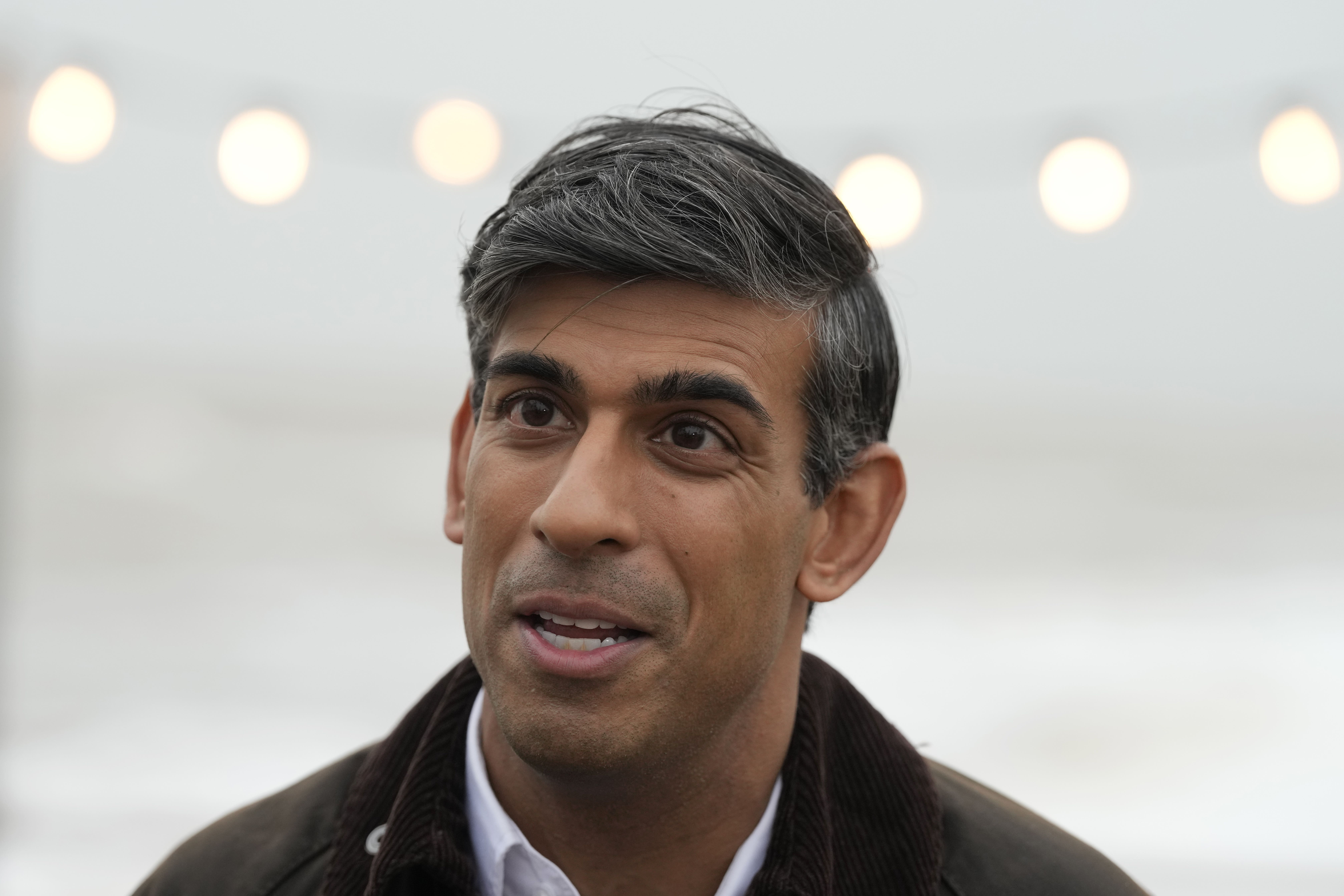Sunak calls for greater aid access to ease ‘acute humanitarian crisis’ in Gaza
Rishi Sunak said Israel had the right to defend itself against Hamas but must act in line with international humanitarian law.

Rishi Sunak has stepped up demands for increased humanitarian access to Gaza after the first aid convoy was allowed to enter from Egypt.
The Prime Minister said he wanted to see a “stream of trucks” passing through the Rafah crossing, with the restoration of water supplies to Gaza “where physically possible”.
Just 20 vehicles were allowed in on Saturday, with campaigners saying it represented a “drop in the ocean” compared to what was needed.
Writing in The Telegraph, the Prime Minister – who visited Israel, Saudi Arabia and Egypt this week – said the world faced an “acute humanitarian crisis” in Gaza.
He said the UK supported “absolutely” Israel’s right to defend itself against the “murderous enemy” and it had a duty to restore the country’s security and bring its hostages back following the October 7 Hamas attacks.
But he said he had been clear with Israeli counterpart Benjamin Netanyahu and president Isaac Herzog “this must be done in line with international humanitarian law and taking every possible step to avoid harming civilians”.
“Palestinian people in Gaza are suffering terribly at the moment, with the casualty numbers climbing constantly,” Mr Sunak said.
“They are the victims of Hamas too, who use the innocent as human shields. The terrorists murder Israeli children, then run and hide behind Palestinian children.
“Too many lives have already been lost following Hamas’s horrific act of terror. The loss of every innocent life diminishes us all – regardless of faith or nationality.”
Israel has laid siege to Gaza and subjected the Hamas-controlled territory to days of bombardment and air strikes, with the intensity expected to increase in the coming days ahead of a possible ground offensive.
But Mr Sunak said there is still “room for politics and diplomacy even at this darkest hour” with “good progress” made to open up humanitarian access to let in food, water and medicine.
He said: “We need to see a stream of trucks rolling through that crossing to bring aid to the civilian population. We also need to see all water supplies to Gaza restored where physically possible.
“All sides should commit to the sanctity of UN installations, hospitals and shelters.”
Mr Sunak also said that intensive work was happening to ensure Britons trapped in Gaza are able to leave through the Rafah crossing while aid passes the other way.
The Prime Minister’s intervention came after Foreign Secretary James Cleverly called for Israel to alleviate the suffering of ordinary Palestinians in Gaza and act with “discipline” in its military response to the Hamas attacks.
At the Cairo peace summit, Mr Cleverly said he had raised the need to protect civilians with Tel Aviv.
He added: “Despite the incredibly difficult circumstances, I have called for discipline and professionalism and restraint from the Israeli military.”
He said the opposition of Hamas to a two-state solution for Israel and Palestine showed “we must ensure Hamas does not win”, and that the Gaza conflict does not spiral into a wider war.
He said: “This has been an issue which has long stimulated passions, and we are now all seeing on social media and in our communities, how divisive and polarising the current situation has become.
“So we have a duty, a duty to work together to prevent instability from engulfing the region, and claiming yet more lives.
“We must work together to prevent the tragic situation in Gaza becoming a regional conflict because that is exactly what Hamas wants.”
ActionAid Palestine spokesman Riham Jafari said the Rafah crossing convoy was “barely a drop in the ocean” and called for a ceasefire and the opening of humanitarian corridors.
“Before this crisis began, around 500 aid trucks would normally cross the border every day providing a vital lifeline to millions of Gazans who were already facing a humanitarian crisis,” she said.
“Aid trucks also did not bring with them the fuel needed to power hospitals, keep ambulances moving, or to pump water from the ground.”
The opening of the Rafah crossing followed another major development in the crisis when Hamas freed an American woman and her teenage daughter it had held hostage in the Gaza Strip, the first such release from among around 200 people the militant group abducted during its October 7 raids on southern Israel.
Judith Raanan and her 17-year-old daughter Natalie were released following talks brokered by Qatar.
Hamas said it had released them for humanitarian reasons in an agreement with the Qatari government.
Meanwhile in the UK, around 100,000 people joined a pro-Palestine march in central London, waving signs saying “Freedom for Palestine” and “Stop Bombing Gaza”.
Chants included “Judaism yes, Zionism no, the state of Israel must go”, and “5, 6, 7, 8, Israel is a terrorist state”.
A total of 10 people were arrested and five officers suffered minor injuries in relation to the demonstrations in London.
Bookmark popover
Removed from bookmarks